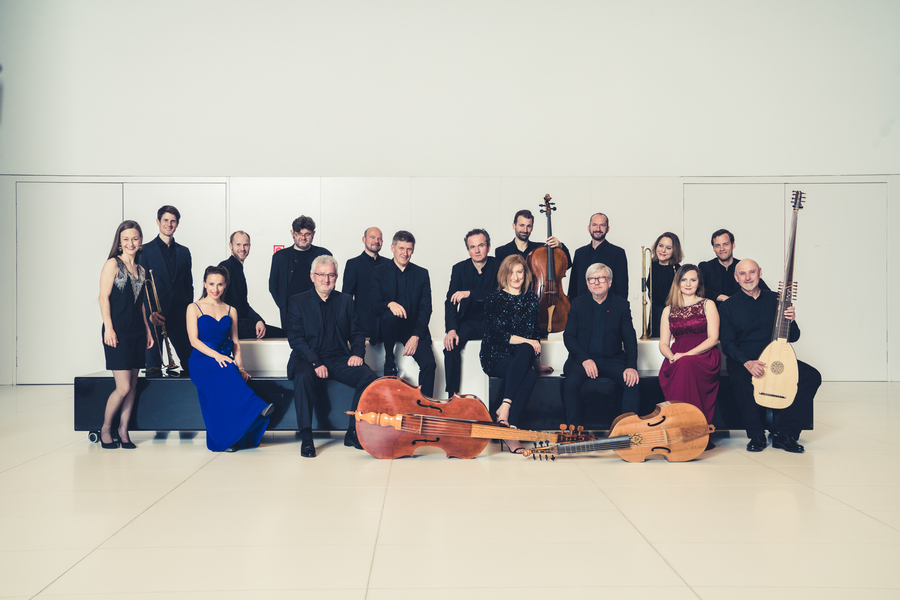During the concert performed by Wrocław Baroque Ensmeble, the works from the collection Offertoria et communiones totius anni by Mikołaj Zieleński, published in 1611 in Venice, will be played. The oeuvre of this composer has strong ties with Wrocław, because until 1942 the only complete set of parts from the Venetian edition was stored in the local Municipal Library.
One of the greatest composers of the Polish-Lithuanian Commonwealth is a figure as outstanding as it is mysterious. We know hardly anything about his life, we do not even know the dates of birth and death of Mikołaj Zieleński. We are sure that in 1611, only a year after the publication of Monteverdi’s groundbreaking Vespro della Beata Vergine, a large collection of the Zeleński’s works was printed in Venice, Europe’s leading arts centre. The two volumes published by Jacop Vincenti – Offertoria totius anni and Communiones totius anni – contain pieces intended for the entire liturgical year. These are not only musical settings of the the mass, compositions for the offering of gifts and holy communion, but also psalms, responsories, hymns, a Magnificat and three instrumental fantasias. We find in them all the major styles and techniques of music of that time. The extraordinary twelve-part, three-chorus canticle of Mary requires a large line-up, the performance of the communiones requires soloists who can cope with virtuoso solo parts and duets, while the motets, in terms of style and formal concept, obviously bring to mind the works of the famous Giovanni Gabrieli. The offertoria are impressive compositions for seven or eight parts, all written in the polychoral technique: two choirs dialogue with each other, and the music corresponds to the spatiality of the church – two groups of singers stood in different places in the church. These brilliant works will be performed by the Wrocław Baroque Ensemble under the baton of Andrzej Kosendiak.

